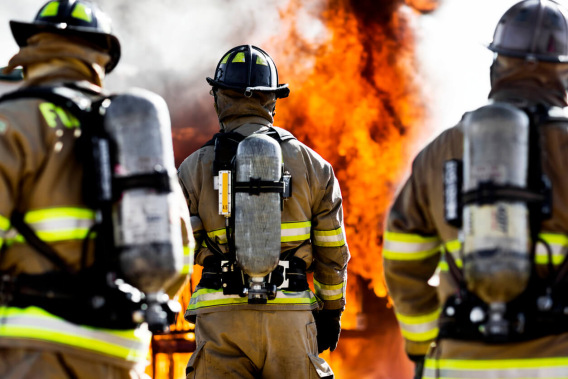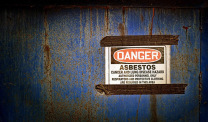Firefighters Union Advocates for Total U.S. Asbestos Ban
Asbestos Exposure & BansWritten by Travis Rodgers | Edited By Walter Pacheco

A representative of the International Association of Fire Fighters appeared before a congressional subcommittee recently to push for a total ban of asbestos in the United States. The IAFF represents thousands of firefighters in the U.S. and Canada.
The labor union is supporting the Alan Reinstein Ban Asbestos Now Act of 2023, which would amend the federal Toxic Substances Control Act. The bill is named for Reinstein, who died in 2006 from mesothelioma after he was exposed to asbestos.
If passed, the legislation would prohibit the use and importation of all six types of asbestos. More than 70 countries have already created a similar ban to eliminate all asbestos.
“Firefighters are regularly exposed to airborne asbestos fibers as they respond to fires and other hazardous situations, making them 200 times more likely to develop related illnesses than the general public,” said IAFF Governmental Affairs Representative Greg Russell. “Occupational cancers have become the leading cause of death among firefighters, and as a response, this union is fully committed to addressing this life-threatening issue head-on.”
In April, a massive warehouse fire broke out at a plastic recycling processing plant in Richmond, Indiana. The U.S. Environmental Protection Agency later found toxic chemicals, including asbestos, at the scene. The IAFF used the fire as an example of why asbestos should be banned.
“On behalf of the IAFF and its members, I urged the congressional staff to make good on their responsibility to the current and future generations of firefighters by taking decisive measures like banning asbestos to protect their lives,” said Russell.
Push for an Asbestos Ban
“A nationwide ban would help protect our first responders and would safeguard their public health,” said Alan Reinstein’s wife, Linda Reinstein, co-founder of the Asbestos Disease Awareness Organization. “It would mean we respect them enough to keep them safe from deadly toxins as they work to help and protect our communities.”
Reinstein said a nationwide ban would lead to fewer firefighters dying each year from asbestos-caused illnesses.
“Firefighters are twice as likely to develop asbestos-related diseases such as mesothelioma or cancer of the lungs, larynx or ovaries,” she said. “Every year, we tragically lose dozens of firefighters due to asbestos.”
Reinstein told Asbestos.com she feels a full asbestos ban would also protect the lives of firefighters’ loved ones who are often subjected to secondary asbestos exposure.
“The families of first responders are also at risk from the ‘deadly hug’ — when microscopic asbestos remains on the clothes or skin of a worker and is spread to their loved ones through touch or close personal contact,” she explained.
This isn’t the first time the IAFF has pushed for a nationwide asbestos ban. In June 2022, the union urged congress to pass the Alan Reinstein Ban Asbestos Now Act of 2022. Linda Reinstein provided testimony during the hearings.
“IAFF has worked tirelessly by ADAO’s side for decades to protect the lives of our nation’s brave first responders, and we are grateful for their support of a nationwide ban of asbestos,” she said. “The IAFF has always been a leader in the fight to protect first responders, their families and communities from asbestos, and they do so with a steadfast commitment to raising awareness, promoting prevention and advocating for policies aimed at eradicating asbestos-related diseases. By supporting this ban, they are supporting and protecting our brave heroes who protect us every day.”
Asbestos Dangers
In 2022, following new research, the World Health Organization reclassified firefighting as a high-risk occupation. The WHO found that firefighters have a 58% higher risk of developing mesothelioma compared to the general population. Nearly a decade ago the Occupational Health and Safety Administration also found that firefighters are twice as likely to be diagnosed with mesothelioma.
Asbestos is a toxic mineral that can not only cause mesothelioma, but also COPD, asbestosis, lung, larynx and ovarian cancer. Because of the material’s strength and resistance to heat, it was used in many products and building materials. Asbestos fibers can be inhaled or ingested and then become trapped in the body. Years later it can cause inflammation, scarring and cancer.
“Prevention is the only cure to asbestos-caused illnesses. If there is no exposure, there is no illness,” Reinstein told Asbestos.com. “By banning asbestos, we limit the exposure people have. Asbestos causes 40,000 deaths each year.”






